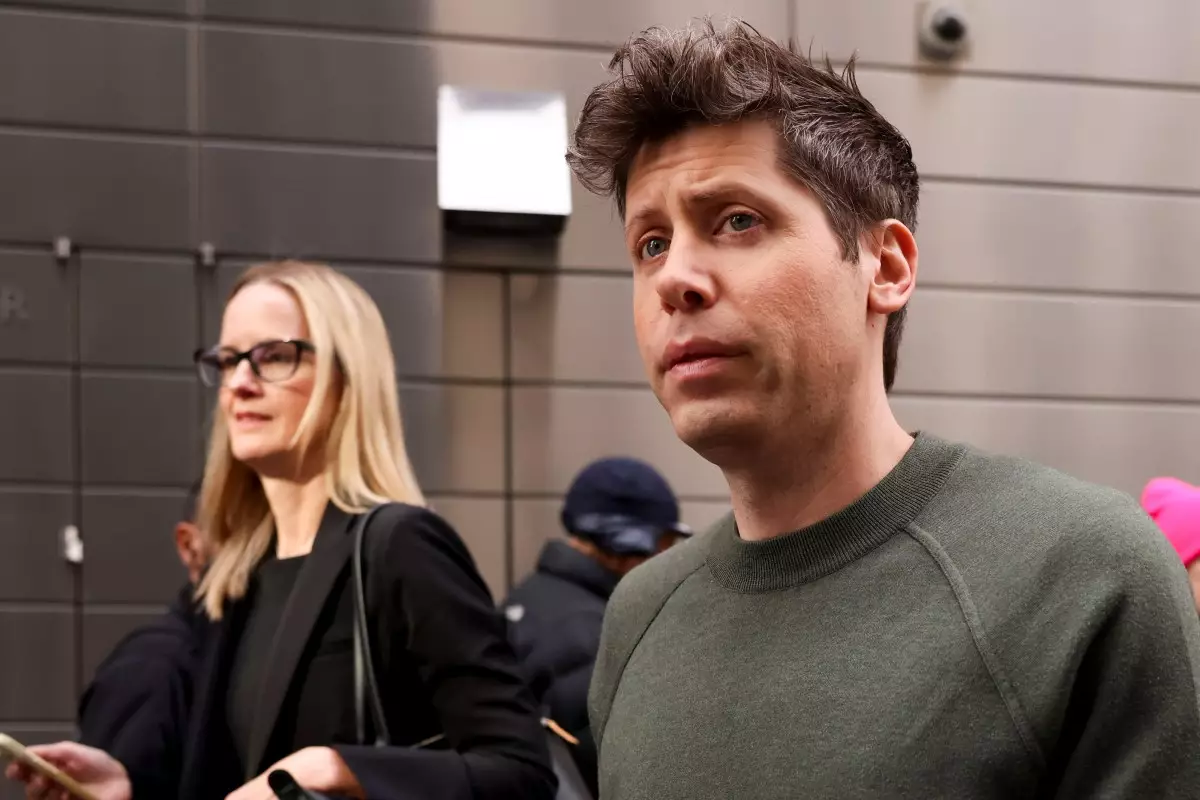The ongoing debate regarding OpenAI’s transition to a for-profit entity has raised significant ethical questions about the responsibilities of organizations developing advanced artificial intelligence. Encode, a nonprofit established in 2020, has recently taken a stand on this issue, filing a request to submit an amicus brief in support of Elon Musk’s attempt to halt the transformation of OpenAI into a profit-driven corporation. This request underscores the broader implications that AI development carries and highlights the clash between commercial interests and public welfare.
OpenAI has evolved considerably since its inception in 2015 as a nonprofit research lab, originally aimed at producing transformative technology for the greater good. However, as projects scaled and funding needs grew, the organization adopted a hybrid model incorporating a for-profit system aimed at attracting investment from venture capitalists, including notable backers like Microsoft. Critics argue that this shift dilutes OpenAI’s original mission by replacing altruistic motives with financial imperatives, sparking fears about the trajectory of AI development influenced predominantly by profit concerns.
The legal framework surrounding OpenAI’s restructuring has come into sharp focus. Encode argues that transforming into a Delaware Public Benefit Corporation (PBC) risks undermining the nonprofit’s foundational commitment to safety and public benefit, potentially allowing the new entity to prioritize shareholder profits over societal welfare. This shift in governance structure raises vital concerns: will the focus on balancing shareholder interests lead to a neglect of safety protocols and ethical guidelines?
Musk contends that the impending transition represents a betrayal of the original mission to make AI’s benefits available to all. He argues that the strategic shift will not only harm public interests but also pose a competitive threat to other organizations striving for innovation in AI. Furthermore, he suggests that by concentrating on profit, OpenAI may unfairly restrict resources that could be critical to advancing alternative AI projects, effectively monopolizing what should be a public resource.
Encode’s involvement in this controversy offers insight into the perspectives of younger generations concerning the ethical ramifications of AI. Founded by high school student Sneha Revanur, Encode aims to amplify the voices of those who will be most impacted by AI technologies. Their involvement affirms that the discussion around AI is increasingly being shaped by individuals who proactively seek to ensure responsible development and invoke ethical principles concerning technological advancements.
The organization’s amicus brief emphasizes that OpenAI’s transformation reflects a broader trend where organizations increasingly prioritize financial gain over societal responsibility. By advocating for the halting of OpenAI’s for-profit transition, Encode is effectively calling for a re-evaluation of the ethical frameworks within which such organizations must operate—insisting on legal structures that guarantee public welfare and safety take precedence over profit margins.
OpenAI’s gradual shift from a nonprofit to a hybrid structure signals a potential cultural paradigm shift in how AI companies operate. With a growing emphasis on profit, there is an inherent risk of diminishing the accountability that organizations have toward ensuring the safe applications of their technologies. The concerns voiced by former employees like Miles Brundage amplify this issue, suggesting a fear that important safety mechanisms could be overlooked as a result of prioritizing commercial outputs.
The transformation raises pivotal questions about the core values of AI development. Does the pursuit of innovation necessitate sacrificing ethical considerations? Will the drive for profitability overshadow the organization’s commitment to advancing safe technologies? If the legal obligations of a PBC do not align with public interest, then the potential welfare harms could be significant in a field as influential as AI—impacts which may resonate across multiple sectors well beyond tech.
As the debate surrounding OpenAI’s transition unfolds, it illustrates a critical intersection of technology, ethics, and commerce. Stakeholders must navigate the multifaceted implications of these developments carefully. Given that AI holds transformative potential for society, it is essential that organizations like OpenAI commit to transparency, accountability, and above all, a genuine mission prioritizing the public good.
In this rapidly evolving landscape, the voices advocating for ethical standards and public welfare must be amplified. Organizations that align their operations with ethical imperatives must be supported in their efforts, ensuring that the advancement of AI continues to align with the foundational goals of collective benefit, incorporating insights and expectations from a broad range of stakeholders—particularly those in future generations who will bear the brunt of these technological changes.

